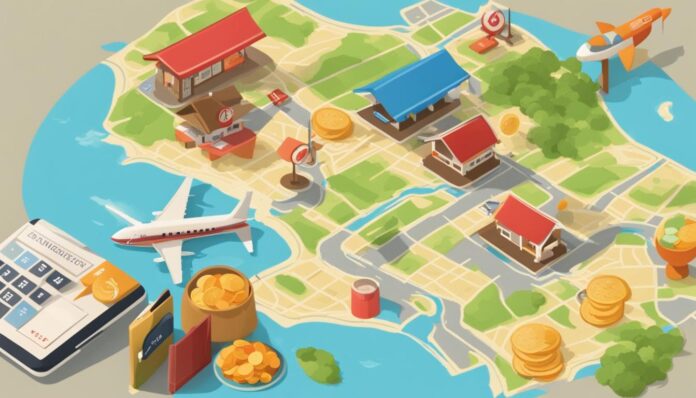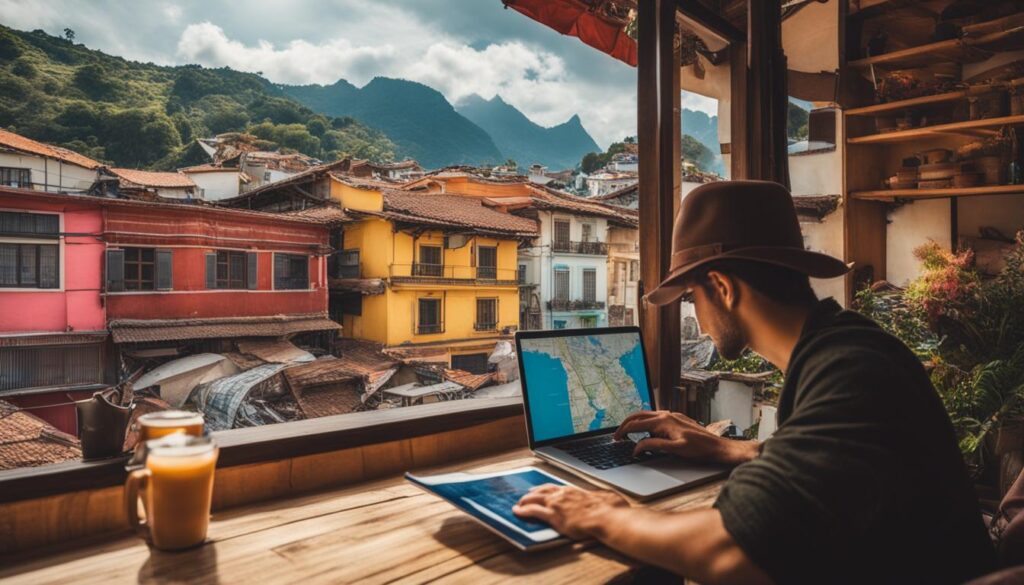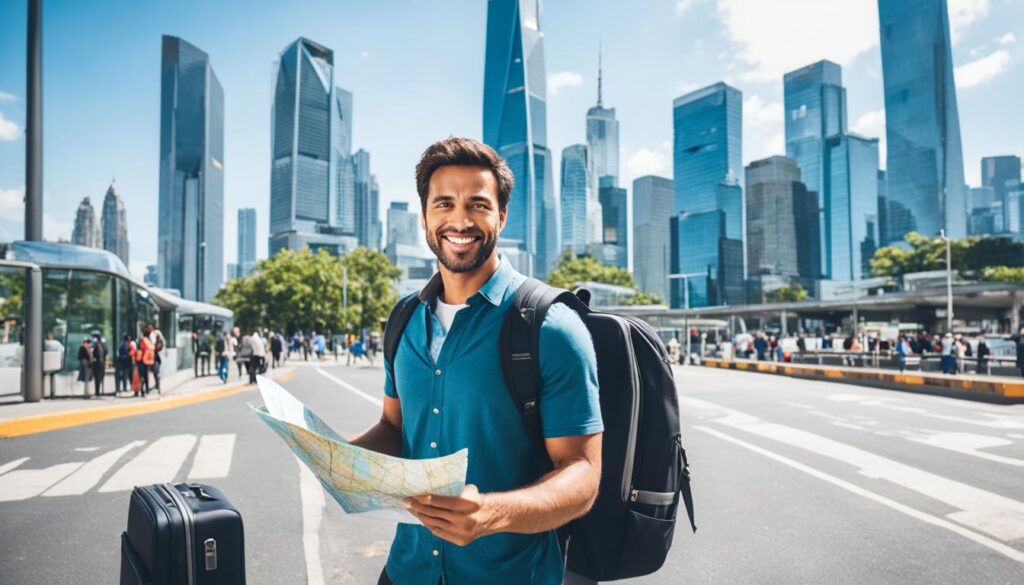Traveling can be a rewarding experience, exposing you to new cultures, people, and places. However, managing your finances while on the road can be challenging and stressful. You may find yourself overspending, running out of cash, or struggling to stick to your budget. That is why we have prepared a set of essential tips to help you manage your finances while traveling.
How to manage finances while traveling? Managing finances on the road can be tricky, but it’s essential to keep track of your spending to make the most of your travel experience. In the following sections, we will explore budgeting tips for travelers, including creating a travel budget, tracking your expenses, researching affordable options, and using travel rewards programs.
Whether you’re embarking on a short vacation or a long-term journey, these strategies will help you stay on budget and make the most of your money while on the go. Let’s dive in.
Create a Travel Budget
Financial planning for travel starts with creating a budget. This will give you an idea of how much you can spend while staying within your means. To start, determine all trip expenses, including transportation, accommodation, meals, activities, and any additional costs. Be as detailed as possible and factor in unexpected expenses, such as emergency medical costs or lost luggage.
Next, calculate how much money you have available for your trip. Consider your savings, any available travel rewards, and income if you plan to work while traveling. Once you have a total trip cost and available funds, you can set realistic spending limits for each category.
A travel budget will not only help you manage your finances while traveling, but it can also help you prioritize your spending to make the most of your trip. Remember to regularly track your expenses to ensure you are staying on track.
Pro tip: Use online budgeting tools or apps, such as Mint or YNAB, to help you create and track your travel budget.
Track Your Expenses
When it comes to managing your finances on the go, keeping track of your expenses is essential. This way, you can maintain a clear understanding of how much money you have left and adjust your spending accordingly. There are several ways to track your expenses while traveling:
- Use a spreadsheet on your phone or laptop
- Download a budgeting app like Mint or PocketGuard
- Record your expenses in a notebook or journal
No matter which method you choose, make sure to separate your expenses by category, such as transportation, accommodation, food, and activities. This way, you can quickly identify which areas you’re overspending on and make necessary adjustments.
| Expense Category | Planned Budget | Actual Spent |
|---|---|---|
| Transportation | $200 | $175 |
| Accommodation | $500 | $450 |
| Food | $300 | $350 |
| Activities | $400 | $375 |
In addition, make sure to keep all receipts and invoices. This way, you can cross-reference your expenses and dispute any errors or discrepancies. By staying organized and proactive in tracking your expenses, you can effectively manage your finances while traveling and avoid overspending.
Research Affordable Accommodation Options
Traveling can be expensive, especially when it comes to finding affordable accommodation. However, with some research and planning, you can save money on your lodging expenses.
Consider staying in budget hotels, hostels, or even alternative accommodations like homestays or vacation rentals. These options can be significantly cheaper than traditional hotels and offer unique cultural experiences.
When booking accommodation, make sure to look for deals and discounts. Many sites offer discounts for booking in advance or staying for multiple nights. Additionally, some credit cards have partnerships with hotels and offer exclusive discounts and perks.
| Accommodation Type | Price (per night) | Features |
|---|---|---|
| Budget Hotel | $50-80 | Basic facilities, often in central locations |
| Hostel | $20-40 | Shared dormitory or private room options, communal areas |
| Homestay | $30-60 | Stay with local families, cultural experiences |
| Vacation Rental | $80-150 | Private apartments or homes, kitchen facilities |
Remember, finding affordable accommodation is not only a practical way to save money while traveling but can also allow you to experience a new city or culture in a unique way. Research your options carefully, and you’ll be rewarded with a memorable and budget-friendly trip!
Cook Your Own Meals
Eating out every meal can be expensive. To save money while traveling, it’s best to cook your own meals whenever possible. Not only will this help you reduce expenses, but it can also be a fun way to experience local culture and cuisine. If your accommodation has a kitchen, take advantage of it and visit local markets to buy fresh ingredients.
Cooking your own meals may take some planning and preparation, but it can be well worth the effort. Here are a few tips to get you started:
- Plan ahead and make a grocery list before heading to the market.
- Consider buying non-perishable items in bulk to save money in the long run.
- Choose easy-to-make meals that require a few ingredients and minimum cooking time.
- Invite other travelers to join you for a communal meal and split the costs.
By cooking your own meals, you can have more control over your food choices and portions, helping you stay healthy while on the road. Plus, you can use the money you save on food to splurge on other experiences.
Use Public Transportation
When it comes to managing finances on the road, transportation expenses can quickly add up. Instead of relying on taxis or rental cars, why not explore the reliable and affordable public transportation systems available in many cities?
Research the local transportation options before you arrive and plan your routes accordingly. Not only will it help you save money, but it can also be a fun way to see the city like a local and experience its culture.
Plus, taking public transportation is often more eco-friendly than driving a personal vehicle, which is a bonus for environmentally-conscious travelers!
Benefits of Using Public Transportation
| Benefits | Description |
|---|---|
| Cost Savings | Public transportation is often cheaper than renting a car or taking taxis. |
| Convenience | Many cities have a well-established public transportation system that can take you almost anywhere you need to go. |
| Reduced Stress | Driving in an unfamiliar city can be stressful and time-consuming. Public transportation allows you to relax and enjoy the ride without worrying about navigating the roads. |
| Environmental Benefits | By using public transportation instead of driving a personal vehicle, you can reduce your carbon footprint and contribute to creating a more sustainable environment. |
“Using public transportation is not only cost-effective, but it’s also a great way to explore the city like a local and experience its culture.”
By using public transportation during your travels, you can save money, reduce stress, and contribute to a more sustainable environment. So, next time you’re in a new city, consider hopping on a bus or train and exploring the sights and sounds the way the locals do!
Research Free or Low-Cost Activities
Exploring your destination doesn’t have to be expensive! There are plenty of free or low-cost activities to enjoy while managing finances on the road. Take advantage of these opportunities to experience the local culture without breaking the bank.
Some cities offer free walking tours, where you can learn about the history and culture of the area while getting some exercise. Additionally, many museums have discounted admission days or are completely free to enter. Check online for deals and discounts before you go.
If you’re looking for some fresh air, consider visiting one of the beautiful parks in the area. It’s a great way to relax and enjoy the scenery without spending any money.
Don’t forget to look online for additional free or low-cost activities in your destination!
Use Travel Rewards Programs and Credit Cards
When it comes to managing finances on the road, using travel rewards programs and credit cards can be an effective strategy. These programs and cards often offer benefits such as airline miles, hotel discounts, or cashback rewards, which can help offset some of your travel expenses.
Before you sign up for a travel rewards program or a credit card, do your research. Look for programs and cards that align with your travel goals and spending habits. For example, if you frequently travel with a specific airline, consider signing up for its rewards program or using a co-branded credit card to earn more miles. Keep in mind that some rewards programs and credit cards may come with annual fees, so make sure to evaluate the costs and benefits before you apply.
If you do decide to use a credit card, make sure to use it responsibly. Pay off the balance each month to avoid high-interest charges and late fees. Using credit cards can help you manage your finances while traveling, but it’s important to remember that they are not a substitute for a travel budget or responsible spending habits.
| Program or Card | Benefits | Annual Fee |
|---|---|---|
| Chase Sapphire Preferred | 2x points on travel and dining, 1x points on other purchases, ultimate rewards points can be transferred to several airline and hotel programs | $95 |
| Capital One Venture Rewards | 2x miles on all purchases, flexible redemption options, up to $100 credit for TSA Pre✓ or Global Entry | $95 |
| American Express Gold Card | 4x points on restaurant, 4x points on U.S. supermarkets (up to $25,000 per year), 3x points on flights booked directly with airlines or on amextravel.com, $120 annual dining credit, up to $100 airline fee credit | $250 |
Withdraw Cash Wisely
When it comes to managing finances on the road, withdrawing cash can be a tricky task. To avoid high foreign transaction fees, you must be cautious when using ATMs.
Some ATMs charge high fees for foreign transactions, so it’s important to research which local banks or ATMs offer the best rates. Withdraw larger amounts at once to minimize transaction fees.
Most importantly, be sure to keep your cash safe and secure while traveling. Avoid withdrawing large amounts in unfamiliar areas and always be aware of your surroundings.
Remember, a little planning and mindfulness can go a long way when it comes to managing your finances while traveling.
Conclusion
Congratulations on reaching the end of our guide to managing your finances while traveling. By following these essential tips, you can make the most of your travels without breaking the bank. Remember to create a travel budget, track your expenses, research affordable accommodation options, cook your own meals, use public transportation, and research free or low-cost activities. Additionally, consider signing up for travel rewards programs and using credit cards wisely to maximize your benefits. By being mindful of your spending and planning ahead, you can make your travel experience more enjoyable and stress-free. Happy travels!

















































